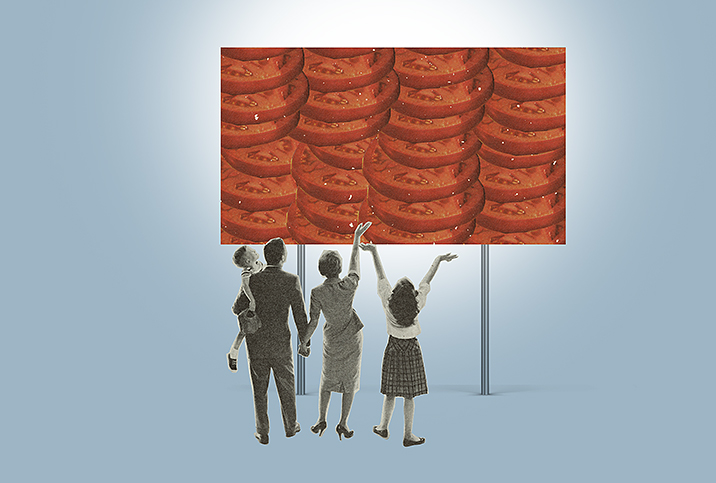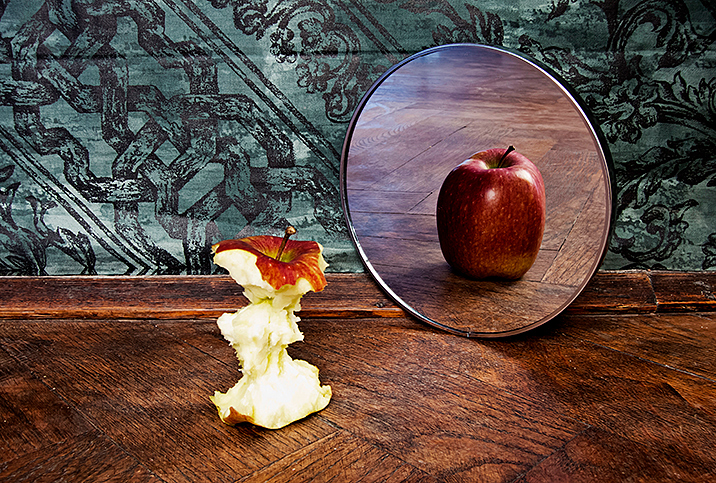A Harmful Fixation on Health: Orthorexia, Part II

The term orthorexia has only recently entered the popular lexicon, but it isn't new. Steven Bratman, M.D., coined the term in 1998 to describe an obsession with healthy eating.
"Orthorexia is something that has been around for the last couple of decades, yet likely intensified as our diet and health culture and propaganda have intensified," said Allison Chase, Ph.D., a certified eating disorder specialist and regional clinical director of the Texas region for Eating Recovery Center.
Losing control
According to Rachel Evans, Ph.D., an eating disorder psychologist in Derby, United Kingdom, certain signs can indicate a person's habits may have diverged into disordered eating:
- Having an obsession with eating only clean or pure food, such as organic, sugar-free or gluten-free.
- Avoiding a broad range of foods, such as carbohydrates, fats or dairy, without a medical reason.
- Being overly critical or feeling superior regarding other people's food choices.
- Having intrusive thoughts about food and spending substantial time thinking about food or situations involving food.
- Creating rules relating to proper food preparation and storage, such as avoiding food prepared by others.
"As someone who suffered an obsession with clean eating, I know all too well that it can take over your whole life," Evans said. "I started on a healthy diet and then became terrified to eat certain foods. I became irritable all the time and planned my whole life around food and exercise. I had to leave my job and I split up with my partner because my rules around food were more important to me.
"One really helpful thing to do is to ask yourself, 'What is this way of living costing me?'" she added. "Often, people begin eating healthily as a way to feel in control, but when you live in fear of breaking a rule, who is in control then? And taking an honest look: Have you got the glowing skin and high energy that a certain diet promised you?"
Where it becomes pathological
Like other conditions involving restrictive eating, orthorexia can lead to several physical, mental and social health implications. This includes low energy, gastrointestinal issues, amenorrhea (absence of periods), low blood sugar and imbalanced hormones. Depression and anxiety can arise or worsen, as well.
Evans and Chase agreed the thoughts and behaviors associated with orthorexia can consume a person's energy and time, impacting various facets of life, from academics and work to relationships.
Evans said orthorexia can evolve into anorexia or bulimia, and often co-occurs with exercise addiction.
"What starts as a desire to eat healthily can become pathological—orthorexia—and can then develop into anorexia and an obsession with achieving a low body weight," Evans explained. "It's quite scary how when the brain is starved, people develop very similar food rules, rituals and fear of regaining any weight loss, even if they felt OK about their appearance before the period of starvation. So what can start as the best intentions can get out of control very easily.
"Also, someone may also begin binge eating because of psychological restriction or nutrient deficiencies related to orthorexia and may develop unhealthy compensatory mechanisms for eating 'unclean' food, such as vomiting or taking laxatives," she added. "In those cases, the diagnosis wouldn't be orthorexia, but it is part of the presentation."
When it's time to seek help
Experts advised seeking help from a qualified health professional, ideally an eating disorder specialist, as soon as you recognize you may have a problem.
"I often hear clients say that they don't think they are ill enough to get support or that they don't deserve to get help," Evans said. "People of all shapes, sizes, ages, races, ethnicities, genders and sexual orientations can develop disordered eating or eating disorders. There isn't a certain look. If you're struggling, then you absolutely deserve to be supported through recovery."
Chase and Evans noted treatment for orthorexia is generally akin to that for other eating disorders. This involves an individualized, integrative approach and a multidisciplinary team composed of a doctor, psychologist and dietitian, and perhaps more members, to address physical and mental health needs.
Evans explained that to facilitate recovery and reduce relapse risk, some mindset and lifestyle changes are necessary, as well. These include finding a flexible way of eating to nourish your mental and physical well-being, and building a new identity away from orthorexic ideas and "healthy" living behaviors.
"Remember, life is about more than what we eat," Evans said. "Focus on how experiences with food can bring so many positives, such as enjoyment and a sense of connection."
Listen to yourself
Since entering recovery, Evans has adamantly eschewed the diet and "wellness" culture and messages that once reinforced, and likely prolonged, her disorder. Sophie Smith, an eating disorder advocate in Perth, Australia, felt the same.
"I think during my orthorexia, because I didn't know I had an eating disorder, these messages just served to reinforce my [eating disorder] and convince me I was doing all the right things," Smith said. "It probably prevented me from noticing something was wrong. In recovery, I was pretty good at distancing myself from a lot of these messages around health, and I was lucky to get to a point relatively early on where I could just sort of be annoyed by them when encountering them."
Smith practices intuitive eating and surrounds herself with people and media in the anti-diet and Health at Every Size spaces. She said she now has the insight and confidence to recognize the importance of an individualized approach to health and that wellness has nothing to do with body mass index (BMI).
"No rule or guideline knows you better than yourself, so listen to yourself before external sources," Smith said. "You get to decide how you want to live your life. And at the end of the day, your relationship with food is so much more important than any single food, meal or snack you will ever eat.
"I'd encourage people to try and think about the intention that lies behind some of the things they're doing," she continued. "Is it purely for wellness? Is it something you're doing because you feel like you should or someone told you it's good for you? Or is it something that you genuinely enjoy when you strip back the layers or diet/wellness culture and societal messaging?"


















